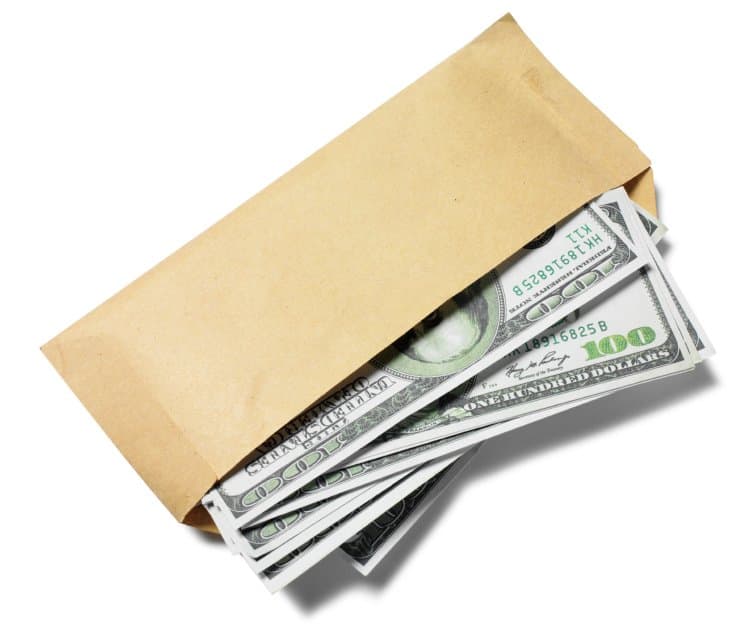 Every now and then, I hear talk about a “secret new opportunity” in the business of tax sale overages (a.k.a, “excess proceeds,” “overbids,” “tax sale surpluses,” etc).
Every now and then, I hear talk about a “secret new opportunity” in the business of tax sale overages (a.k.a, “excess proceeds,” “overbids,” “tax sale surpluses,” etc).
If you're completely unfamiliar with this concept, I'd like to give you a quick overview of what's going on here.
What Are Tax Sale Overages?
When a property owner stops paying their property taxes, the local municipality (i.e., the county) will wait for a time before they seize the property in foreclosure and sell it at their annual tax sale auction. Every county in the U.S. uses a similar model to recoup its lost tax revenue by selling properties (either tax deeds or tax liens) at an annual tax sale.
REtipster does not provide legal advice. The information in this article can be impacted by many unique variables. Always consult with a qualified legal professional before taking action.
Suppose you own a property worth $100,000. One day, you decide (for whatever reason) to stop paying your property taxes.
Eventually, a couple of years go by and the county treasurer comes in and seizes your property for non-payment of property taxes.
At the time of foreclosure, you owe about $18,000 of taxes and late fees to the county. A few months later, the county brings this property to their annual tax sale. Here, they sell your property (along with dozens of other delinquent properties) to the highest bidder—all to recoup their lost tax revenue on each parcel.
Since you owed $18,000 on your property at the time of foreclosure, the county decides to start the bidding process at $18,000. This is because it's the minimum they will need to recoup the money that you owed them.
Your Property Is Worth More
Here's the thing: Your property is easily worth $100,000. Most of the investors bidding on your property are fully aware of this, too. In many cases, properties like yours will receive bids FAR beyond the amount of back taxes actually owed. It wouldn't be uncommon for such a property to actually sell at auction for, say, $40,000 (still a great deal for the buyer—at 40% of market value, and FAR more than the $18,000 you originally owed).
But get this: the county only needed $18,000 out of this property. The margin between the $18,000 they needed and the $40,000 they got is known as “excess proceeds” (i.e., “tax sales overage,” “overbid,” “surplus,” etc). Many states have statutes that prohibit the county from keeping the excess payment for these properties.
This is where the “secret business opportunity” exists in collecting excess proceeds. The county has rules in place where these excess proceeds can be claimed by their rightful owner, usually for a designated period (which varies from state to state).
And who exactly is the “rightful owner” of this money? In most cases, it's the last owner of record at the time of foreclosure—YOU.
That's right! If you lost your property to tax foreclosure because you owed taxes—and if that property subsequently sold at the tax sale auction for over this amount—you could feasibly go and collect the difference. There are a few simple steps to claim the money, though. This includes proving you were the prior owner, completing some paperwork, and waiting for the funds to be delivered.
Who Should Be Using This Strategy?

However, this approach DOES make sense for an investor who has almost nothing to lose.
For example, with the investing strategy I use, I could buy properties free and clear for pennies on the dollar. To the surprise of some investors, these deals are all over the place. Assuming you know where to look, it's frankly not difficult to find them.
When you can buy a property for a ridiculously cheap price AND you know it's worth substantially more than you paid for it, it may very well make sense for you to “roll the dice” and try to collect the excess proceeds that the tax foreclosure and auction process generate.
The real beauty behind this strategy is that you don't have to do anything to sell your property. Rather than spending your money, energy, and effort to create a great real estate listing and promote the heck out of it, the county will do all the work for you. If you're the “rightful owner” of any excess sale proceeds generated from their selling efforts (which will happen on their dime, not yours), you just need to be smart enough to claim those excess proceeds after the fact.
And most people have no idea that this opportunity exists!
The Truth About Tax Sale Overages
This is all sounding pretty interesting, right?
The only problem with everything I've said so far is, I've been describing the most ideal situation ever. While it can certainly pan out similar to the way I've described it above, there are also a few downsides to the excess proceeds approach you really ought to be aware of.
1. Many properties will never generate excess proceeds.
While it depends greatly on the characteristics of the property, it is entirely possible (and in some cases, likely) that there will be no excess proceeds generated at the tax sale auction. Often, this happens when a property isn't “desirable” in the first place. Or perhaps the county doesn't generate much public interest in their auctions.
Either way, if you're buying a property with the sole intent of letting it go to tax foreclosure so you can collect your excess proceeds, what if that money never comes through? Would it be worth the time and money you will have wasted once you reach this conclusion?
2. In nearly all cases, it takes a long time to collect tax sale overages.
If you're expecting the county to “do all the work” for you, then guess what, you'll have to work with their schedule. In many cases, their schedule will literally take years to pan out. So is it worth your time to sit around for that long, all so you can maybe get paid one day?
3. Several states don't even allow the collection of excess proceeds.
I actually had to learn this lesson the hard way. The first time I pursued this strategy in my home state, I was told that I didn't have the option of claiming the surplus funds that were generated from the sale of my property—because my state didn't allow it. In states like this, when they generate a tax sale overage at an auction, the state becomes the “rightful owner” automatically. They just keep it!
Does your state allow for the collection of excess proceeds?
If you're thinking about using this strategy in your business, you'll want to think long and hard about where you're doing business and whether their laws and statutes will even allow you to do it. I spent several hours doing some high-level research on all 50 states and this was what I found (click the map below to find out)…
Disclaimer: Some of these states were rather vague in the way they addressed the specific issue of tax sale overages (and several states had different versions of similar rules). I did my best to give the correct answer for each state above, but I'd recommend that you verify this information for yourself before proceeding with the assumption that I'm 100% correct. Remember, I am not an attorney or a CPA and I am not trying to give out professional legal or tax advice. Talk to your attorney or CPA before you act on this information.
When and Why This Is a Legitimate Strategy
It's impossible for me to make a blanket statement that this type of business IS or ISN'T a valid opportunity. The fact is, there are thousands of auctions all around the country every year. At many of these auctions, hundreds (or even thousands) of investors will show up, get into a bidding war over many of the properties, and drive prices WAY higher than they should be. This is partially why I've never been a huge fan of tax sale auctions.
If you want to pursue this strategy, here's a step-by-step:
- Verify that you can actually collect excess proceeds in your state (use the map above as a starting point. Check its accuracy with a third-party professional before you get started).
- Get a delinquent tax list. There are a few ways to do this (another of which is described here).
- Send out a direct mail campaign (preferably, a few months from the foreclosure date, when motivated sellers are most motivated to unload their property for next-to-nothing prices).
- Send out offers for as low as possible and buy as many as you can (preferably ones that are actually desirable). IMPORTANT: You should NOT pay off the delinquent tax balance during your purchase process (you will most likely have to accept a Quit Claim Deed rather than a Warranty Deed for the property).
- Play the waiting game until the property has been foreclosed by the county and sold and the tax sale.
- File a claim for the excess proceeds with the county treasurer or tax collector (follow the applicable rules/process in your state).
Pros and Cons of Collecting Tax Sale Overages
Pursuing excess proceeds offers some pros and cons as a business. Consider these before you add this strategy to your real estate investing repertoire.
Pros:
- This strategy requires minimal effort on the selling side. If selling is something you absolutely hate, this may influence your decision.
- There can be some HUGE upside potential if and when the stars align in your favor—they seriously need to in order to achieve the best possible outcome.
Cons:
- This is a unique approach to real estate investing in that it creates a major lack of control in the selling process.
- There is the possibility that you will earn nothing in the end. You may lose not only your money (which hopefully won't be very much), but you'll also lose your time as well (which, in my mind, is worth a lot more).
- Waiting to collect on tax sale overages requires a lot of sitting, waiting, and hoping for results that usually have a 50/50 chance (on average) of panning out favorably. If you're the kind of person who needs control and immediate results, this approach will probably drive you insane.
- Collecting excess proceeds isn't something you can do in all 50 states. If you've already got a property that you want to “roll the dice” on with this strategy, you'd better hope it's not in the wrong part of the country.
Want to Learn More?
I'll be honest—I haven't spent a lot of time dabbling in this area of investing because I can't handle the mind-numbingly slow pace and the complete lack of control over the process. It drives me crazy!
With that being said, I still know there is a lot of money to be made in this arena; it's just not the primary niche that I've chosen to pursue myself.

If you want to learn about his system for collecting hidden tax sale cash, you can find out more through this affiliate link (if you sign up through this link, REtipster.com will earn a commission at no extra cost to you).

















